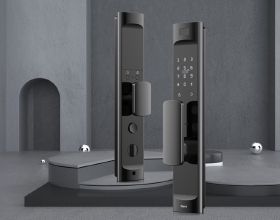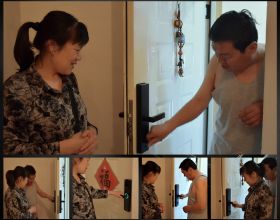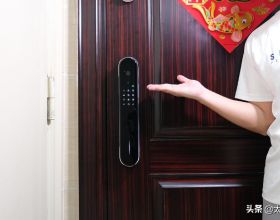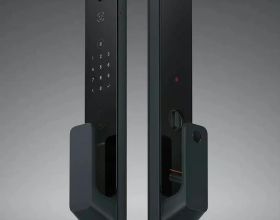作者花了二十多年時間研究睡眠,又花了許多時間寫出《Why We Sleep》,在書的末尾提供了12條提升睡眠質量的建議,我嘗試著用自己的語言進行一次翻譯。
- 堅持規律作息,讓睡覺時間與醒來時間每天都保持一致,週末也不要例外,畢竟週末的晚起並不完全彌補工作日欠的睡眠賬,還會讓週一更難起床。設定一個提醒自己睡覺的鬧鐘吧,讓我們每天都規律睡眠。如果這12條建議,只能留下一條,那就是這條了——規律作息。(書中經常舉例的睡眠時間是11點到7點。)
- 運動是棒棒的,不過不要太晚運動,最好早於睡覺時間兩到三個小時。如果可以的話,每天至少運動30分鐘。(我的親身體會是,打球確實能夠提升我的睡眠,但如果晚上10點還在打球,當天晚上的11.30甚至到12點,我的腦子會不停地胡思亂想,導致第二天精神略差。)
- 儘量別喝咖啡、別抽菸。咖啡、可樂、某些茶和巧克力都含有咖啡因,攝入的咖啡因需要8小時左右才能被身體排除乾淨,它會抑制adenosine(腺苷,清醒時分泌的一種化學物質,積攢的越多越想睡覺)的效果,下午喝的咖啡排不乾淨就可能會影響晚上的入睡了。尼古丁也是一種興奮劑,會導致吸菸者睡的很輕,另外,尼古丁被身體排出體外,可能會導致吸菸者早上醒的過早。
- 睡覺之前不要飲酒。喝一小杯能夠放鬆身心,喝多了會剝奪REM睡眠,一直處於淺睡狀態。過度飲酒還會導致夜間呼吸障礙,也會導致半夜醒來。(最後一句我是不太懂的,不過晚上會醒來是肯定的,喝啤的,會一直起來上廁所,喝白的,就會一直想要喝水;都會在半夜醒來好幾次。作者這裡說能夠放鬆身心,並不是建議睡前喝一杯,少量的酒能使人放鬆,但對睡眠質量並無幫助。)
- 避免深夜暴飲暴食。少吃點沒關係,吃多了會消化不良,喝多了會頻頻起床。
- 如果可能的話,避免使用會影響睡眠的藥物。一些藥物會影響睡眠,如果有睡眠問題,在醫生開藥的時候諮詢一下是否可以每天早點服用。
- 下午3點之後不要小睡啦。小睡可以彌補睡眠不足,但是太晚的小睡,會使得晚上難以入眠。
- 睡覺前需要放鬆一下。忙碌一天之後,請在睡覺之前給自己留一點放鬆時光,看看書、聽聽音樂。(或者擺擺家常?)
- 上床之前洗個熱水澡。洗澡之後身體溫度的下降能夠讓人產生睡意,洗澡可以使人放鬆、讓自己慢下來,更好入眠。
- 讓臥室保持黑暗、涼爽、安靜,選擇適合自己、讓自己舒服的床和枕頭,將一切可能影響睡眠的事物都搬離臥室。
- 如果可能的話,多曬曬太陽。有條件,每天曬太陽至少30分鐘。日光是調節日常睡眠模式的關鍵,日出而作、日落而息,不止美,也是人類進化了340萬年的生理規律。
- 如果閉眼超過20分鐘後還清醒、或者在床上開始感到焦慮擔憂,不要一直躺著,起來做一些放鬆活動,直到有了睡意。擔心自己睡不著會讓自己更容易睡不著,相信自己,一閉眼就能進入夢鄉!
翻譯添加了一些我自己的理解,下面是英文原文:
Stick to a sleep schedule. Go to bed and wake up at the same time each day. As creatures of habit, people have a hard time adjusting to changes in sleep patterns. Sleeping later on weekends won’t fully make up for a lack of sleep during the week and will make it harder to wake up early on Monday morning. Set an alarm for bedtime. Often we set an alarm for when it’s time to wake up but fail to do so for when it’s time to go to sleep. If there is only one piece of advice you remember and take from these twelve tips, this should be it.
Exercise is great, but not too late in the day. Try to exercise at least thirty minutes on most days but not later than two to three hours before your bedtime.
Avoid caffeine and nicotine. Coffee, colas, certain teas, and chocolate contain the stimulant caffeine, and its effects can take as long as eight hours to wear off fully. Therefore, a cup of coffee in the late afternoon can make it hard for you to fall asleep at night. Nicotine is also a stimulant, often causing smokers to sleep only very lightly. In addition, smokers often wake up too early in the morning because of nicotine withdrawal.
Avoid alcoholic drinks before bed. Having a nightcap or alcoholic beverage before sleep may help you relax, but heavy use robs you of REM sleep, keeping you in the lighter stages of sleep. Heavy alcohol ingestion also may contribute to impairment in breathing at night. You also tend to wake up in the middle of the night when the effects of the alcohol have worn off.
Avoid large meals and beverages late at night. A light snack is okay, but a large meal can cause indigestion, which interferes with sleep. Drinking too many fluids at night can cause frequent awakenings to urinate.
If possible, avoid medicines that delay or disrupt your sleep. Some commonly prescribed heart, blood pressure, or asthma medications, as well as some over- the-counter and herbal remedies for coughs, colds, or allergies, can disrupt sleep patterns. If you have trouble sleeping, talk to your health care provider or pharmacist to see whether any drugs you’re taking might be contributing to your insomnia and ask whether they can be taken at other times during the day or early in the evening.
Don’t take naps after 3 p.m. Naps can help make up for lost sleep, but late afternoon naps can make it harder to fall asleep at night.
Relax before bed. Don’t overschedule your day so that no time is left for unwinding. A relaxing activity, such as reading or listening to music, should be part of your bedtime ritual.
Take a hot bath before bed. The drop in body temperature after getting out of the bath may help you feel sleepy, and the bath can help you relax and slow down so you’re more ready to sleep.
Dark bedroom, cool bedroom, gadget-free bedroom. Get rid of anything in your bedroom that might distract you from sleep, such as noises, bright lights, an uncomfortable bed, or warm temperatures. You sleep better if the temperature in the room is kept on the cool side. A TV, cell phone, or computer in the bedroom can be a distraction and deprive you of needed sleep. Having a comfortable mattress and pillow can help promote a good night’s sleep. Individuals who have insomnia often watch the clock. Turn the clock’s face out of view so you don’t worry about the time while trying to fall asleep.
Have the right sunlight exposure. Daylight is key to regulating daily sleep patterns. Try to get outside in natural sunlight for at least thirty minutes each day. If possible, wake up with the sun or use very bright lights in the morning. Sleep experts recommend that, if you have problems falling asleep, you should get an hour of exposure to morning sunlight and turn down the lights before bedtime.
Don’t lie in bed awake. If you find yourself still awake after staying in bed for more than twenty minutes or if you are starting to feel anxious or worried, get up and do some relaxing activity until you feel sleepy. The anxiety of not being able to sleep can make it harder to fall asleep.
















